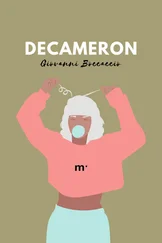“Bonnie’s talked to you about this too?”
Alice nodded. “She came over yesterday.”
“None of us want you to erase Burl, honey. You have your memories and your pictures and all your letters. But you’re not allowed to pretend like he’s still here. Every time you look at that chair, I know a part of you is waiting for him to walk in and sit down. It isn’t good for you.”
“Why isn’t it good? Why can’t you hold onto somebody for as long as you want to? There isn’t a law.”
“What happens when you go to bed? Haven’t you got used to him not being in that bed with you?”
Alice shook her head. She took out a handkerchief and blew her nose. “Half the time he’d fall asleep in front of the TV and not come to bed at all.”
“Sweetie, I want you to go to that answering machine and erase that O.G.M. and record a new one. I’ll be here to help you.”
“What do I say?”
“Just say, ‘You have reached the Schuford residence. I’m sorry but I can’t take your call right now.’ They don’t have to know if you’re out of the house or in the bathtub or whatever. But make it ‘I’, honey. Not ‘we.’”
Alice half-smiled. “I almost thought of taking in several foster children — one of those crazy things that go through your head. I thought about filling my house full of voices because I don’t have Burl’s voice anymore. Do you know how quiet it is here without Burl going off on first one thing and then another? ‘Read my lips: no new taxes,’ my ass!”
“Burl would have been a Perot man, wouldn’t he?”
Alice nodded. After a brief silence, Bettie led her friend to the answering machine. Alice found the owner’s manual and together the two figured out what needed to be done to record a new O.G.M.
Vicki was the first to hear it. She called while Alice was out buying groceries at Rainbow Foods. Vicki immediately phoned her sister Bonnie.
Bonnie picked up after three rings. Bonnie was playing her stereo. Vicki could hear someone singing in the background, but she couldn’t quite tell who it was.
“Hi, Bonnie. You’ll be happy to know that Mom has changed the announcement on her answering machine.”
“That’s good.” Bonnie sniffed.
“Have you been crying?”
“I was thinking about Dad.”
“What are you listening to?”
“Natalie Cole. She’s singing ‘Unforgettable’ with her father.”
“How can she do that? He’s dead.”
“It’s magic.” Vicki could hear Bonnie blowing her nose.
“Is it on the radio or did you put on a record?”
“I put it on. I listen to it every day.”
“Do you cry like this every time you hear it?”
“No. Just sometimes.” Bonnie cleared her throat. “I’m proud of Mom.”
“I am too.”
“It hurts so bad sometimes, Vicki.”
“I know, baby. I know.”
1993 SHELVED IN NEW MEXICO
“Don’t Stop (Thinking About Tomorrow).”
It used to be Jocelyn’s favorite song. It wasn’t anymore. It was one thing for Ernesto to whisper-sing it into Jocelyn’s ear. It told her that Ernesto was willing to wait, that he understood her situation, that he understood this culture that valued family above everything else — even personal happiness.
But it was something very different to hear it now. Now that Ernesto had removed himself from Jocelyn’s life. The song mocked her. The Clinton campaign had appropriated it for its campaign theme song. The new president had even convinced Fleetwood Mac to reunite — temporarily — so they could perform it at his inaugural ball. This happened only a few weeks after Ernesto and Jocelyn’s break-up. It made Jocelyn want to become a Republican.
The break-up took place in two stages; the first came on Christmas Eve in Albuquerque’s Old Town, when Jocelyn had gone to help her father close up his jewelry shop. She helped her father in the store whenever she could get away. But there were fewer and fewer chances for her to do this. Her mother required around-the-clock care now. This was also Jocelyn’s job — a job for which she didn’t get paid.
Christmas Eve was the exception. Jocelyn’s brothers and older sister came to the house so that they could shower love and attention on the mother they didn’t have to take care of all of the other days and nights of the year. They brought their kids. Luis had even driven up from Las Cruces. Mama could no longer make the Christmas Eve tamales. Luis’s wife Marilyn found an old woman in nearby Mesilla who made them. They tasted almost as good as Mama’s. Almost .
Because of all the people who came to Old Town to see the festive luminarias, Papa kept the shop open late. It was nine o’clock and the streets were crowded with locals and tourists. A mariachi band was playing seasonal music on the plaza just across from San Felipe de Neri Church. The church, constructed of five-foot-thick adobe brick, was being spruced up. It was about to celebrate its bicentennial. San Felipe de Neri reminded Jocelyn of her mother: battered and buffeted by the years, but still standing.
For all of Jocelyn’s mother’s health problems, she seemed destined to live on and on. Thanks, of course, to Jocelyn’s constant care and attention.
Jocelyn and her father, Ruben, had just stepped out of the shop when they saw them coming down the sidewalk: Ernesto and one of the waitresses who worked in the restaurant in Old Town that Ernesto’s father owned and Ernesto managed. She was hanging on Ernesto’s — on Jocelyn’s boyfriend’s arm, drunkenly nibbling his ear. Ernesto appeared drunk too. He seemed, at first, to be looking right through Jocelyn, but when her presence finally registered, he quickly detached himself from the draping, clinging, nibbling woman who was all flouncy Mexican skirt and ruffled blouse, all lipstick and eyeshadow and everything feminine and desirable that Jocelyn had never allowed herself to be. Jocelyn hadn’t time for herself. She was the self-sacrificing caregiver. She was the handsome woman in muted colors who helped the old man in his shop. Jocelyn had to tamp down her vibrant female spirit as she waited for the circumstances of her life to change.
“Hello, Jocelyn. Hello, Ruben,” said Ernesto. “This is Rosa.”
“I know Rosa,” said Jocelyn without smiling.
“Feliz Navidad to you both. Rosa and I are going to a party.”
“Tell them the good news, Ernesto,” slurred Rosa.
“Oh, yes. My father has decided to retire. He wants me to have Luna’s. He’s giving me good terms.”
“Tell them the other good news, Ernesto.”
“Not now, cariño .”
Ernesto waited until the next day to tell Jocelyn the “good news.” It wasn’t so good for Jocelyn. As Mama and Papa and Jocelyn’s three brothers and one sister and all of her nieces and nephews were sitting themselves down to Christmas dinner, Ernesto came to the door and took Jocelyn out onto the xeriscaped front lawn (though she was needed inside to help serve). He had to tell Jocelyn something important: he wouldn’t be seeing her anymore. He was seeing Rosa now. Soon he would be marrying Rosa. He had waited for four years for Jocelyn to come around and he wasn’t going to wait anymore.
Jocelyn felt as if the sky had fallen down on top of her. She hated Ernesto for leaving her, for making her stop thinking about tomorrow, but at the same time she was aware of how unfair it had been to leave him on the hook for so long. And yet, was any of it Jocelyn’s fault? This was the way it worked: the youngest daughter was required to put her life upon the shelf if this be the mother’s wish, to remain in attendance to her mother’s later-life needs — to sacrifice a large part of her own life for the woman who bore her.
Читать дальше












